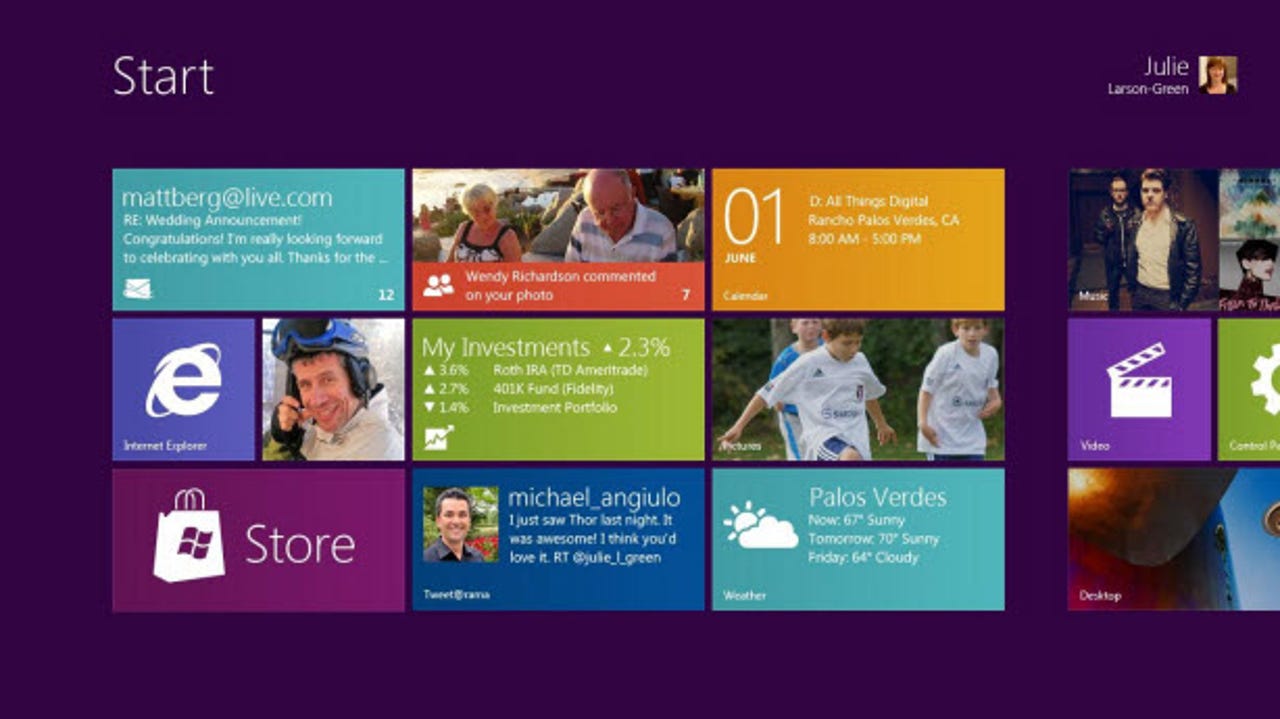Could Windows 7 become the new Windows XP?

Is Microsoft in danger of turning Windows 7 into the new Windows XP?
What do I mean by that? Well, take a look at the usage share statistics for Windows XP. Despite being two versions out of date it still commands an almost 50% usage share. People are holding onto XP for dear life rather than opening their wallets and upgrading to the latest and greatest.
Could this be a problem facing Microsoft when it tries to get people to upgrade to Windows 8? It could well be ...

Here's an interesting quote by PC Pro's Barry Collins:
For desktop PC or laptop users, however, we're struggling to see the appeal. The entire interface is so geared towards touch, that using a mouse or cursor keys to navigate around the Start screen just feels awkward. We suspect Windows 7 will remain the operating system of choice for conventional PC users.
It's a good point.
While Jensen Harris, director of program management for the Windows Experience, says that "every screen needs to be touch. A monitor without touch feels dead," the truth is that it's hard to see touch becoming mainstream on the desktop for a number of reasons - one of the most obvious being that most people's desktop environments aren't set up in a way that makes them conducive to touch. Who wants to have their arms up in the air to point at stuff when they have a perfectly good pointing device on the desk? Why wants a fingerprint covered screen? What makes touch better on the desktop or a notebook? So far Microsoft is giving us hyperbole rather than concrete answers as to why this technology is needed outside of tablets.
Here's another problem. Touch adds significant cost to a system at a time when people are watching the pennies. I can see OEMs offering touch panels as optional extras, but unless there's a compelling case made for touch, tablets will be where most people get to experience this new input device.
And finally, it doesn't seem like you're going to be able to do everything using touch anyway, since the Metro UI is only a veneer over Windows. Imagine trying to control this with touch:
I like touch on a tablet, but the problem is that Microsoft has yet to make a compelling case for touch on a desktop or notebook PC which have more refined pointing devices as standard. I can understand if Microsoft took the Apple approach and pushed a device like the Magic Trackpad, but to push touch as touchscreen doesn't make much sense to me on the desktop, and little sense on notebooks.
Touch is quite definitely a tablet feature, yet Microsoft is trying to shoehorn it onto the desktops and notebooks (maybe as a way to invigorate sales, because more PC sales means more money in Microsoft's coffers), but the problem is that most of its customers will not be using touch, and will likely not want it or need it. And if they don't want touch, why upgrade to Windows 8.
What to YOU think?